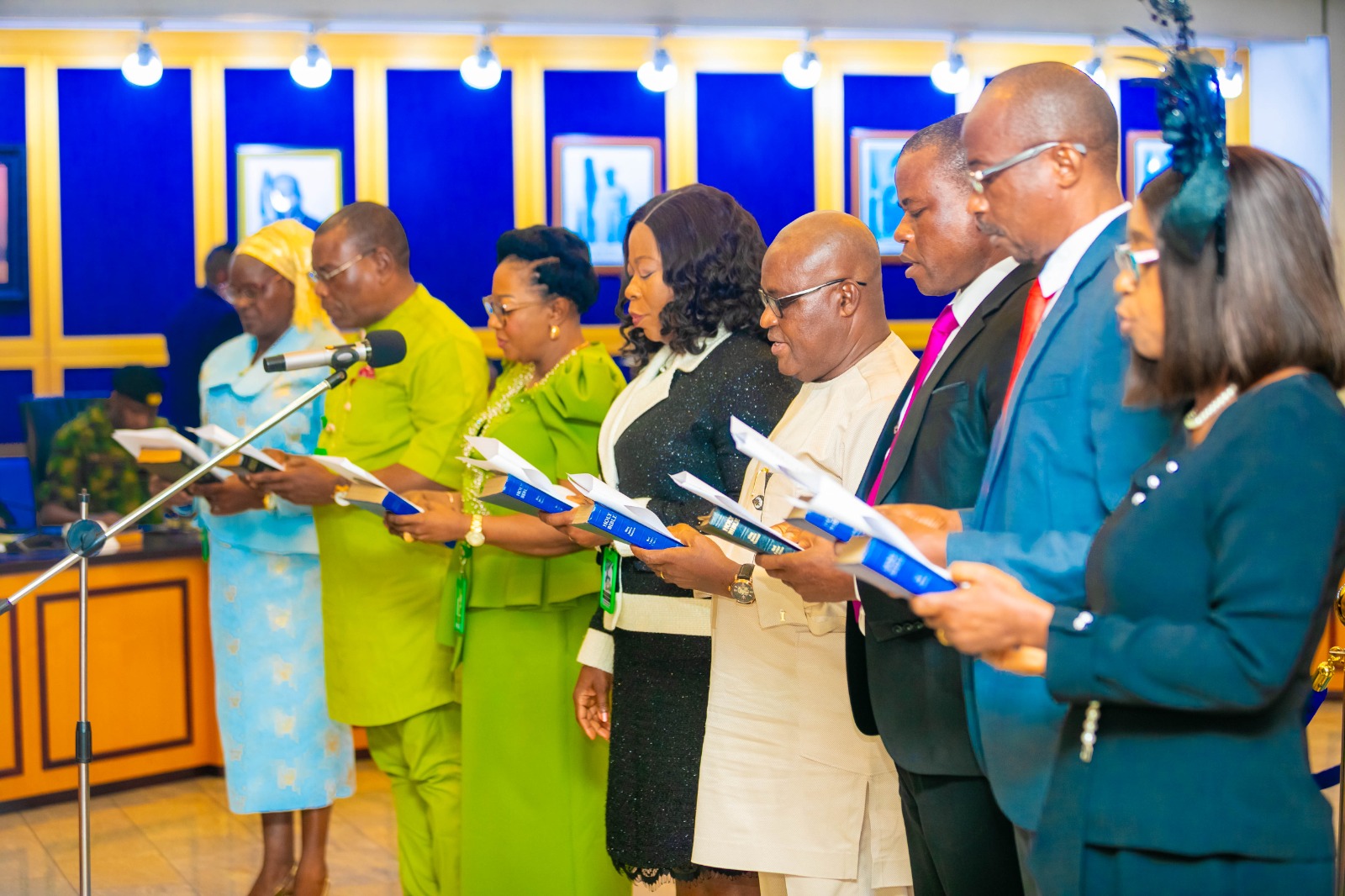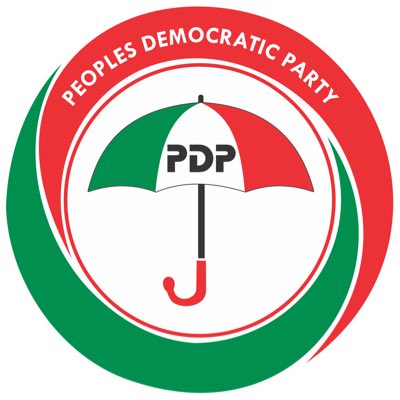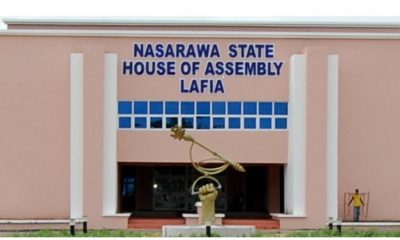News
Nigeria searches for $7 billion to combat COVID-19 issues
The Nigerian government has drafted several requests to international lenders requesting a total number of $6.9 billion in order to keep their economy afloat as well as continue their battle against the novel Coronavirus.
Although the country has not seen too much of the virus, compared to Europe and the United States at least, the government still decided to impose a 2-week shutdown in order to prevent the spread. Currently, the country has 232 confirmed cases and 5 deaths in total, but more cases are expected in the coming weeks.
Who is Nigeria asking for help?
The Nigerian government has addressed multiple international lenders. These include the International Monetary Fund ($3.4 billion), the World Bank ($2.5 billion) and the African Development Bank ($1 billion).
All of this was announced by the Minister of Finance, Zainab Ahmed herself.
However, considering the serious economic implications of the Coronavirus, many Nigerian politicians believe that asking these organizations for a loan is not the right thing to do at the moment.
Criticism has been heard of the Nigerian government for worrying about the economy much more than the pandemic spreading across the country, and only imposing the shutdown just a couple of days ago.
Although it is true that most of the funds requested from these international organizations will be dedicated to keeping the economy alive before the pandemic stops, it needs to be highlighted that Nigeria is still in serious danger of having the virus spread out of control.
Although most commercial states are on lockdown, there are some regions in the country where movement is relatively free.
Why is Nigeria asking for so much?
The next big question is finding out why Nigeria needs so much money and where most of it is going to be spent. It’s quite an easy question to answer. Nigeria is the largest oil producer on the African continent, which means that it is going to dedicate these funds to solidifying that position well into the future.
You see, the COVID-19 didn’t only topple stock prices of large corporations worldwide, it also seriously impacted oil prices, which were already significantly weakened well before the outbreak.
To put this in perspective. The Nigerian government devised a national budget when oil prices were around $59 per barrel. The price is somewhere in the range of $30 per barrel nowadays, and demand keeps on dropping as fewer people drive or use oil-consuming machinery and technology.
Due to this massive change in pricing, the Nigerian government had to adjust by cutting costs during 2020, but that is simply not enough. Having your country’s biggest income effectively be cut more than half is a serious hit to all of the plans created not only for that year but for the future.
Criticism floats up once more
Naturally, whenever a government plan has some kind of issues that could have been avoided, there will always be opposition members or just freelance politicians criticizing these policies. In this case, it’s very hard not to agree with what is being said in most of the cases.
Most of the politicians were advocating a more diverse economy, investments into different industries rather than re-investment into the oil. Tricks that have worked in the past are not necessarily going to work in the future, and considering oil is a finite resource, Nigeria is seriously advised to look into diversification.
And this is not only about Nigeria as well. The largest oil-exporting countries in the world such as Norway, Saudi Arabia, the UAE, and even the United States have considered this issue seriously.
But most surprisingly, there are countries that normally don’t have too large of oil production for export that are already deviating away from the commodity, and in that sense, Germany is a perfect example.
What can Nigeria learn from Germany
Naturally, it’s very hard to compare these two economies as Germany is a production powerhouse that has already diversified beyond anything that Nigeria could achieve in the next decade or so, but there are still some nice hints as to what could be changed.
Let’s talk about taboo industries as an example. In this sense, both Nigeria and Germany have quite a lot in common. Banning or discrediting taboo industries such as gambling, for example, is present in both countries, but both of them have seen huge demand for these services.
The difference is seen when we look at the actions taken by both countries. Germany, for example, does not charge any fines to its citizens playing online roulette or any other game of chance. The only fine goes to the company providing this service. In Nigeria, it’s a bit different as the country has only a few companies operating in the country which tend to be untrustworthy in terms of service and tax.
Germany is easily able to pinpoint websites that provide these services and fine them pretty much on a monthly basis. This pretty much acts like a monthly tax which is always fixed. It’s a small loophole, but mutually beneficial nonetheless.
In Nigeria though, the trust in government-approved companies is fading as people switch to unlicensed platforms, thus depriving the authorities of tax and information. It would be much better for the local government to either allow commercialization of gambling or introduce a similar system as in Germany.
Back to the topic – will Nigeria get the funds it is requesting?
There is one thing to consider. Nigeria is a country that has the capacity to repay the debt it is asking the IMF and other organizations for, but the question is whether these organizations will be able to deliver.
There are quite a lot of middle eastern and central Asian countries that have requested the same organizations for financial assistance, therefore some serious budgeting is to be expected.
It’s unlikely for every country to get what they asked for, but some funds could be covered. One real issue that Nigeria could face is a serious deficit in what it asked for. At that point, there will be no other way than asking China for financial assistance, and that is something that Nigeria could simply not afford at this point, considering how much it already owes to China.
News
Ibas Inaugurates RSIEC, Service Commissions, Healthcare Board In Rivers …Charges Appointees To Embrace Principles Of Service

The Administrator of Rivers State, Vice Admiral (Rtd) Ibok-Ete Ibas, has charged newly appointed Board members to uphold the highest standards of discipline, competence, integrity, and unwavering dedication in their service to the State.
He emphasized that such commitment is critical to stabilizing governance, restoring democratic institutions, and advancing the principles of good governance in the State.
This was contained in a statement by the Administrator’s Senior Special Adviser on Media, Hector Igbikiowubo on Monday.
Ibas issued the charge on Monday while inaugurating the reconstituted Rivers State Independent Electoral Commission (RSIEC), Rivers State Civil Service Commission, Rivers State Local Government Service Commission, and the Rivers State Primary Health Care Management Board at Government House, Port Harcourt.
The Administrator urged the new appointees to embrace their roles with diligence, patriotism, and a commitment to transforming Rivers State through excellent service.
Addressing the Chairman and members of RSIEC, Ibas underscored their pivotal role in ensuring credible local government elections that reflect the will of the people.
“Your task is clear but demanding: to conduct free, fair, transparent, and credible elections at the grassroots level. You must resist bias, favoritism, and external interference while restoring public confidence in the electoral process,” he stated.
“The independence of your actions is crucial to sustaining peace, stability, and grassroots governance. I urge you to act with fairness, impartiality, and professionalism—even in the face of difficult choices,” Ibas added.
The Sole Administrator also charged the Rivers State Civil Service Commission on the need to eliminate mediocrity and foster a culture of excellence through merit-based recruitment, training, and promotions.
“The civil service must transition from favoritism to competence, integrity, and accountability. Your commission will lead reforms, including digital transformation and standardized practices across ministries, departments, and agencies,” he said.
He disclosed that extensive training programmes are underway, with a committee set up to overhaul the public service framework for greater efficiency.
Meanwhile, Ibas urged the Rivers State Local Government Service Commission to ensure professionalism and discipline in local government administration.
“As the closest tier of government to the people, you must drive reforms that insulate the system from politics and mediocrity. Your mandate includes merit-based recruitment, training, and enforcing standards for effective service delivery,” he stated.
In the same vein, the Administrator charged the Rivers State Primary Health Care Management Board with revitalizing healthcare delivery across the state’s 23 local government areas.
“Primary healthcare is the foundation of a sustainable health system. Your board must ensure facilities are adequately staffed, equipped, and operational focusing on maternal health, immunization, malaria control, and community health services,” he said.
He emphasized data-driven operations, incentives for rural health workers, and restoring the referral system to improve healthcare access.
He also assured the Board of sustained government support, including funding, for the effective discharge of their mandates but warned that board members would be held accountable for their performance.
The newly inaugurated members include: RSIEC: Dr. Michael Ekpai Odey (Chairman) with Prof. Arthur Nwafor, Prof. Joyce Akaninwor, and others as members.
Civil Service Commission: Dr. Livinus Bariki (Chairman), Amb. Lot Egopija, Mrs. Maeve Bestman, and others.
Local Govt. Service Commission: Mr. Isreal Amadi (Chairman), Rear Adm. Emmanuel Ofik (Rtd), Dr. Tonye Pepple, and others.
Primary Health Care Board: Dr. Dawari George (Chairman), Dr. Chituru Adiele (Executive Director), Prof. Kaladada Korubo, and representatives from key ministries.
News
Rivers PDP Debunks Sale Of LGA Election Forms

The Publicity Secretary of the Peoples Democratic Party (PDP) in Rivers State, Dr. Kenneth Yowika, has debunked claims that the party has commenced sale of forms for chairmanship and councillorship elections across the 23 local government areas of the state.
Yowika made the rebuttal in a statement made available to newsmen on Wednesday, describing the publication on the social media as baseless and untrue.
He urged members of the PDP to disregard the claim, saying that official communication regarding the sale of forms would be disclosed through the appropriate channels.
“With reference to information trending on social media, it has been falsely claimed that the sale of forms for Chairmanship and Councillorship elections in the 23 Local Government Areas (LGAs) of Rivers State will begin soon.
“However, the party has firmly denied these rumours, stating that they are baseless and untrue.
“The party has its own established methods of reaching out to its numerous supporters.
“The People’s Democratic Party, a law-abiding organisation, will patiently await the release of guidelines from the recently inaugurated Rivers State Independent Electoral Commission (RSIEC) before considering any sale of election forms.
“The PDP is urging its members to remain calm as official communication regarding the sale of forms will be disclosed through appropriate channels,” the statement read.
Enoch Epelle
News
South-South contributes N34trn to Nigeria’s economy in 2024 – Institute
Prof. Pius Olanrewaju, President of the Chartered Institute of Bankers of Nigeria (CIBN), has stated that the South-South region contributes N34 trillion to country’s economy in 2024.
He made the remark at the South-South Zonal Banking and Finance Conference in Calabar, yesterday.
He spoke on the theme, ‘’Building An Inclusive South-South: Economic Diversification as a Catalyst For Development.’’
Olanrewaju, who quoted the data from the Cable Data Index, said the feat was more than 21 per cent of Nigeria’s real Gross Domestic Product (GDP).
The president described the growth as ‘’ impressive,’’ saying that it was not driven by oil alone but significant expansions in trade, services, and the creative industries.
According to him, to fully harness this potential, coordinated financial, technological, and policy support is essential.
“As we work to reposition the South-South for broad-based prosperity, the financial system must play a central role, not merely as a source of capital, but as a catalyst for innovation, ideas incubation, and inclusive economic growth.
“This conference, therefore, provides a strategic opportunity for stakeholders to reimagine the South-South economy, not merely as a resource belt, but as a region of diverse capabilities and resilient enterprises.”
Olanrewaju added that Nigeria must move beyond old models and chart a new course for the development of the South-South region, where financial institutions and stakeholder collaborate to diversify the economy for shared prosperity.
He, however, commended Gov. Bassey Otu for his pledge of land for CIBN Secretariat in Cross River and being the first sitting governor to willingly undergo and complete the Chartered Bankers Programme.
On his part, Gov. Otu said that the conference discussion on the economic diversification in South-South region was timely against the backdrop of global trade and economic volatility that was affecting the nation’s economy.
Represented by his deputy, Mr Peter Odey, Otu said the South-South region must now act with urgency to diversify its economy while leveraging its shared natural endowment in agriculture and extractive resources.
“This conference must help develop tailored financial solutions that reflect the unique strengths and realities of states like Cross River in the south-south.
“Diversification should be evidence-based and must be backed not just by financial advice but project focused financing and real investment support,” he noted.
He said that Cross River had taken the bold step to invest in its agricultural sector by launching an Agro processing hub.
Otu further said that the state had invested in aviation by acquiring more aircrafts for Cally Air, construction of the Bakassi Deep Seaport and injecting N18 billion in its tourism sector.
Similarly, Mr Tolefe Jibunoh, Cross River Branch Controller of the Central Bank of Nigeria (CBN) said that the region was blessed with natural resources, cultural diversities and immense human potentials.
Jibunoh, who was represented by Mr Segun Shittu, Head, Currency Control Office, CBN, Calabar, noted that strategic diversification could unlock unprecedented opportunities for growth in the region.
He added that the CBN remained steadfast to maintain monetary possibilities and promote a sound financial system as a catalyst for sustainable economic development for the benefit of all.
-

 Business22 hours ago
Business22 hours agoIndustry Leaders Defend Local Content, … Rally Behind NCDMB
-

 Politics19 hours ago
Politics19 hours agoNasarawa Speaker Advocates Conducive Executive/Legislature Relations
-
Niger Delta21 hours ago
Delta Leverages On Extensive River Networks To Drive Blue Economy
-
News20 hours ago
FG Renames University of Maiduguri After Buhari …As Tinubu Pours Encomiums On Late President
-
News22 hours ago
PCRC Dismisses Claims Of Police Strike As Fake, Mischievous
-

 News18 hours ago
News18 hours agoRivers PDP Debunks Sale Of LGA Election Forms
-
Niger Delta21 hours ago
Bishop Mocks Fake Prophecy Seekers … As Priests Relive Challenges At Ordination Ceremony
-
Rivers24 hours ago
Macobarb CEO Cries Out, Says No Indigenous Contractor Can Win Case Against NLNG Or Oil Majors in Nigerian Courts …As Justice Nwogu Throws Out Macobarb’s N5.74bn Claim

